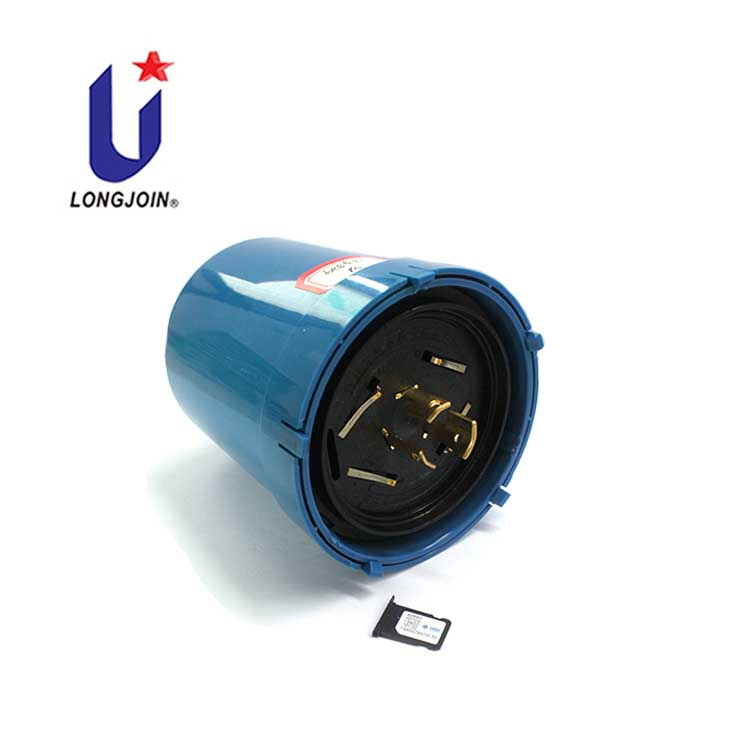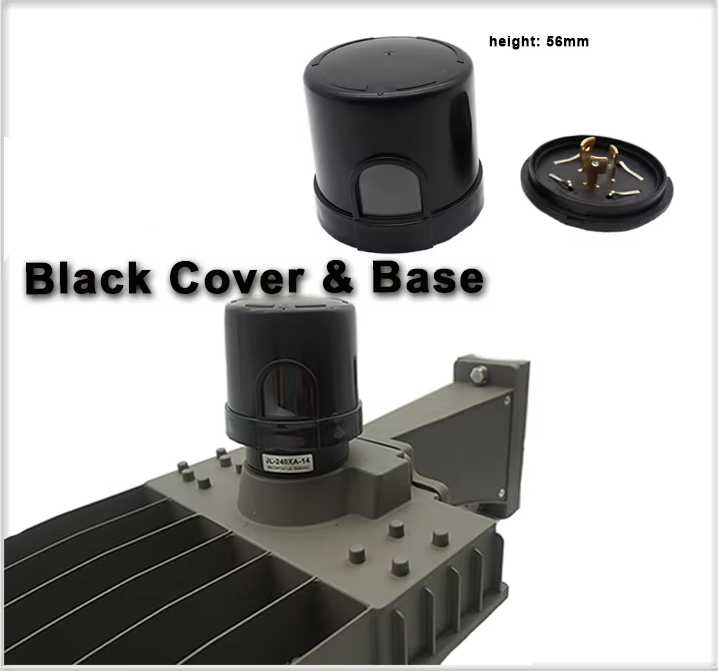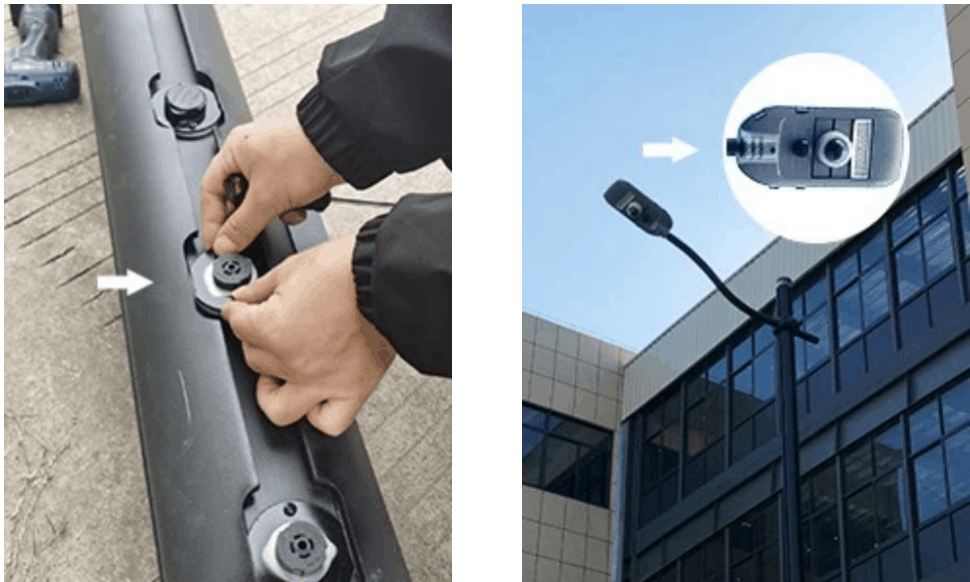Outline
- Introduction
- How Does the MQTT Protocol Enhance the JL-245CG’s Smart Communication Capabilities?
- In What Ways Does JL-245CG Light Photocell Sensor Provide Real-Time Electrical Monitoring and Fault Feedback?
- How Does JL-245CG Lighting Control Enable Smart Positioning and Geo-Tracking Without Built-In GPS?
- Why Is JL-245CG LED Street Light Photocell a Game-Changer for Smart City Lighting Systems?
- What Does JL-245CG Mean for the Future of IoT-Enabled Street Lighting?
- The Bottom Line
Smart cities demand more than just automated lighting. They need communication, diagnostics, and location intelligence built into every system. The JL-245CG smart light sensor photocell switch by Long-Join is designed to meet these needs.
- It connects streetlights to the cloud using the MQTT protocol for real-time control.
- It detects electrical faults instantly and reduces downtime through predictive alerts.
- It also supports geo-tracking via mobile integration for large-scale deployments.
Together, these features make JL-245CG a reliable tool for the next generation of smart city lighting.

How Does the MQTT Protocol Enhance the JL-245CG’s Smart Communication Capabilities?
MQTT is a lightweight, publish-subscribe messaging protocol. It runs over TCP/IP. The protocol is mainly designed to support devices with limited processing power.
MQTT relays messages between publishers and subscribers through a broker. Light sensor switches send data (publish). The cloud or apps receive it (subscribe). Neither needs to know the other’s address or status.
This decoupling brings big advantages:
- Supports thousands of light poles without complex addressing.
- Poles can send alerts even when cloud or mobile apps are offline.
JL-245CG can both report photosensor readings and receive control commands via MQTT. It’s two-way by design. Advanced MQTT features bolster reliability:
- QoS Levels (0, 1, 2) ensure appropriate delivery guarantees based on criticality.
- Persistent Sessions let reconnections resume smoothly, retaining state and queued messages.
- Last Will & Testament notifies the cloud if a device disconnects unexpectedly.
Further, MQTT is widely supported by major cloud players. This includes some well-known names like AWS IoT and Azure IoT Hub. That ensures JL-245CG can integrate with existing smart-city platforms easily.
Here is a table further comparing MQTT vs other IoT protocols in smart lighting.
| Protocol | MQTT | HTTP | CoAP | LoRaWAN |
| Bandwidth Usage | Very Low | High | Low | Very Low |
| Scalability | Excellent | Limited | High | High |
| Reliability in Poor Networks | High | Moderate | Moderate | Good (long range) |
| Security Support | TLS/SSL | Basic encryption | DTLS | AES-128 |
| Best Use Case | Streetlights, sensors | Web-based apps | Constrained IoT devices | Rural/off-grid lighting |
In What Ways Does JL-245CG Light Photocell Sensor Provide Real-Time Electrical Monitoring and Fault Feedback?
JL-245CG does much more than just switch lights on and off. It functions as a diagnostic edge device. It constantly measures electrical metrics in real time.
Key Monitoring Parameters
It tracks critical parameters to spot anomalies early:
- Voltage
- Current
- Power consumption
- Lamp operating status
These readings let operators know exactly how each light pole is performing.
Fault Reporting and Alerting
JL-245CG detects and flags faults swiftly. It sends alerts to management platforms the moment something goes wrong. Common fault types include:
| Fault Type | Detection Method | Platform Notification |
| Overvoltage / Undervoltage | Controller auto-detects out-of-range voltage | Instant alert to the platform |
| Overcurrent | Internal protection plus alert | Event-triggered notification |
| Communication loss | Backend flags timeout | Marked as offline or unresponsive |
| Brightness anomaly | Compares feedback to expected | Logged as brightness deviation |
| Sensor failure | Self-check or missing daylight input | Diagnosed by platform analytics |
These immediate alerts enable maintenance teams to act fast.
Predictive Maintenance
Early detection can help with proactive fixes. Faults get fixed before they escalate. That cuts downtime. That also cuts repair costs.
How Does JL-245CG Lighting Control Enable Smart Positioning and Geo-Tracking Without Built-In GPS?
JL-245CG skips a built-in GPS module. Yet it lets you map devices accurately.

Mobile App Device Registration & Smartphone GPS
Devices register using a mobile app. The app captures the smartphone’s GPS coordinates at registration. This attaches each dusk-to-dawn photocell to the correct location.
Cloud-Platform Mapping for Large Deployments
Registered devices appear automatically on a cloud-based lighting map. You see the exact locations for all light poles. This works across cities, parks, and campuses.
While other systems use similar techniques, JL-245CG relies on the user’s phone to tag locations accurately.
Ideal for Campus, Municipality, and Park Installations
- Geo-tagging through your phone avoids hardware sensors.
- Registration is fast and cost-effective.
- It’s perfect where poles are close to staff during setup.
- Geo-tracking helps maintenance teams find faults quickly.
- It suits sprawling lighting networks in cities, campuses, and parks.
Optional Embedded GPS for Advanced Needs
Need built-in GPS? Custom JL-245CG variants are available. These models include embedded GPS modules for use cases requiring mobile assets or off-grid lighting. Ideal for moving light assets or precision mapping.
Why Is JL-245CG LED Street Light Photocell a Game-Changer for Smart City Lighting Systems?
| Feature | Benefit to City Operations |
| Real-time cloud integration | Enables instant control and monitoring at scale. |
| Energy insights | Data-driven energy use helps reduce costs and emissions. |
| Mobile pairing for deployment | Field teams install and register devices quickly and flexibly. |
| Scalable MQTT communication | Supports thousands of streetlights with minimal infrastructure. |
Remote Diagnostics, Real-Time Integration & Energy Insights
JL-245CG flags electrical faults almost instantly. That triggers maintenance before poles go dark. The device interacts with cloud platforms in real time. Cities get live updates and control, even from afar.
Reports on voltage, current, and usage shape energy-saving strategies. Granular insights help drive EPC projects and reduce carbon footprint.
Simplified Deployment via Mobile Pairing
JL-245CG skips complex wiring for location setup. Field personnel use a mobile app to register poles with GPS data attached. This saves time and boosts accuracy. Rollouts across campuses, parks, and city grids become faster and cost-effective.
Mass Installations Enabled by MQTT Scalability
MQTT’s lightweight pub-sub model keeps bandwidth low. Its broker architecture scales effortlessly across thousands of devices.
Adding more light poles is easy—just connect and subscribe. This bandwidth efficiency and resilience are vital for smart city grids.
What Does JL-245CG Mean for the Future of IoT-Enabled Street Lighting?

Backbone of Modern Infrastructure
Smart street lighting is now central to city infrastructure. It acts as a digital backbone for smart-city systems like environmental monitoring and public safety.
JL-245CG supports this role with real-time monitoring and geo-aware deployment. It transforms lighting poles into powerful IoT nodes.
Sustainability
IoT-based lighting with adaptive controls can cut energy use by up to 60%. JL-245CG helps achieve this through LEDs, intelligent dimming, and smart fault detection. It delivers instant fault alerts and energy insights. Cities can reduce power consumption and lower CO₂ emissions with these capabilities.
Enabling Expansion into AI-Driven Lighting Networks
Smart lighting is moving toward AI-driven intelligence. Systems will adapt illumination based on the environment and usage patterns. JL-245CG’s IoT-ready design makes this transition seamless.
It enables predictive lighting control through sensor fusion and integration with urban analytics. It also ensures today’s smart lighting evolves into tomorrow’s AI-powered networks.
The Bottom Line
Smart lighting is no longer about switching—it’s about communication, diagnostics, and location intelligence. The JL-245CG delivers all three, making it a key enabler for future-ready street lighting. For cities and businesses seeking a reliable integration, Chi-Swear offers a trusted supply of JL-245CG photocells with proven quality and support.





